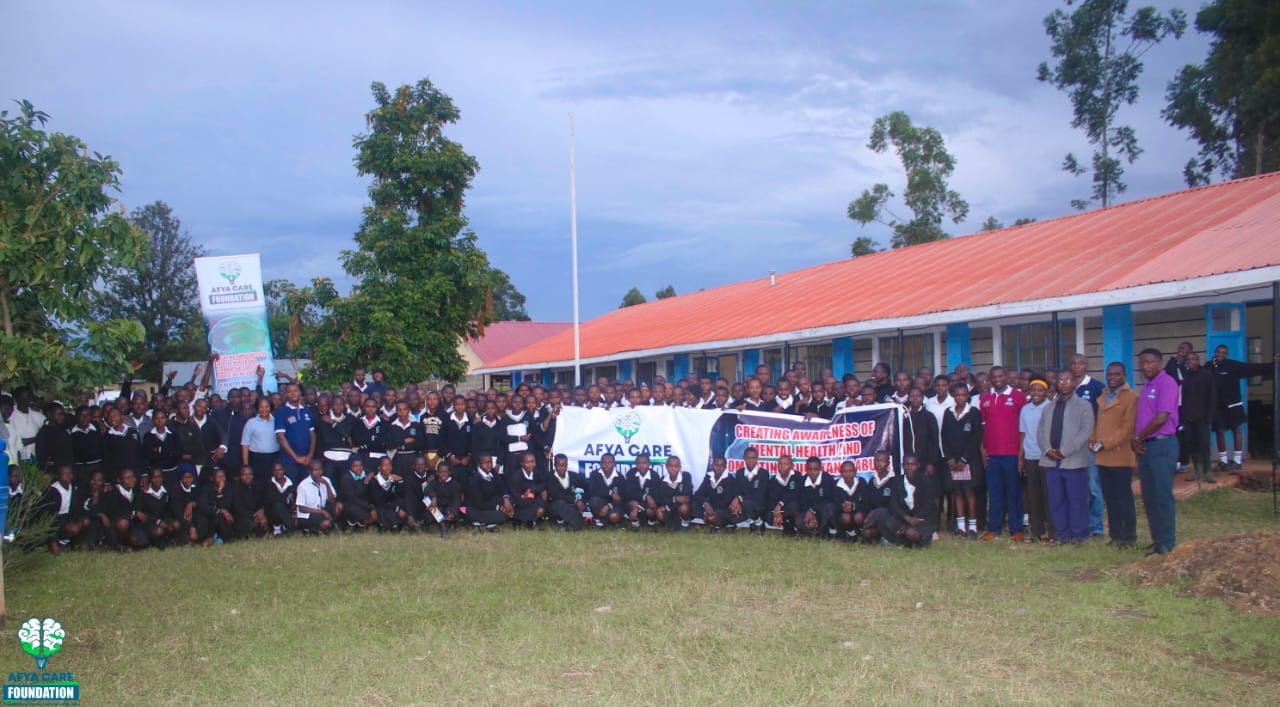
Teachers, students and Afya Care Foundation members posing for a photo session, after a mental health awareness education at Njoro Secondary School in Endebess Constituency. Photo: Ezzy Pixels/Afya Care Foundation.
With performance directly linked to the sobriety of the student’s mental wellness, Manyuro David, a guiding and counselling teacher, has called on continuous mental health education awareness among Schools in the country.
According to him, the awareness program has positively impacted the students of Njoro Secondary School in Endebess Constituency, Trans Nzoia County. He acknowledged the presence of issues relating to drugs and substance abuse linked to mental disturbance among students last year, but there has been change after the visits in Mental health education by Afya Care Foundation.
“I thank Afya Care Foundation for coming to rescue our students, for you coming we are doing better as a school, last year we had some issues concerning our students, but since you started coming we are doing well as a school. I want to urge the concerned team that if we can have more programs, as as school we will do very well,” he said.
His calls aligning with the Susan Mwenyekenye, a guiding and counselling teacher from Katakwa Secondary School in Busia, who urged the ministry of education to train the guiding and counselling teachers on mental health, to effectively deal with the emerging mental health issues among students.
Earlier, Dr. Neccism Okumu, a member of the foundation said students in the border counties of Kenya including Bungoma, Busia, Trans Nzoia, West Pokot and Turkana, have easier access to drugs from the neigbouring country Uganda, attributed to less stringent measures by the Kenyan government and porous borders easily facilitating influx of drugs in the counties.
Additionally, the counties also have a high poverty index, affecting many students, who try to find ‘comfort’ in drugs, an action Afya Care Foundation is trying to dispense, by creating awareness through healthy means of maintaining healthy mental well-being, despite surrounding life challenges.
The students were taught about the tapping technique by Dr. Calistus Wekesa, who said the technique helps reduce anxiety and tension among students, and it should be done in a silent room, with eyes closed for one to reflect on the possible solutions to their discomfort and avoid distraction.
The tapping technique involves tapping from the rare sides of the eyes, down along the nose to the cheeks and chin for about six minutes, with interval of one minute on each tapping.




